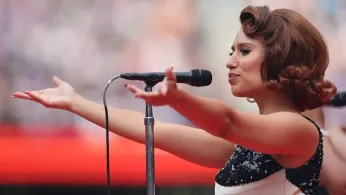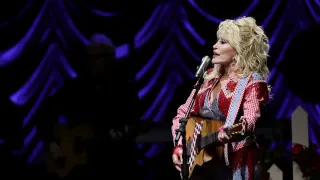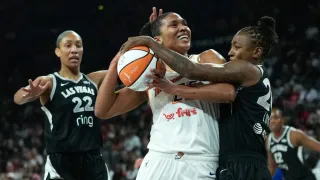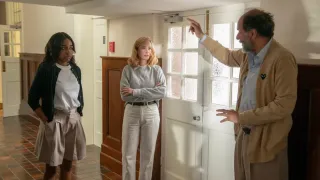
3 hours ago
Elton John, Olivia Rodrigo, Doja Cat, Questlove, Twenty One Pilots and Raye to Present at Rock Hall
Mark Kennedy READ TIME: 1 MIN.
A glittering list of music figures will help present awards at the Rock & Roll Hall of Fame induction ceremony this year, including Elton John, Olivia Rodrigo, Doja Cat, Questlove, Twenty One Pilots, Missy Elliott and Raye.
The induction ceremony honoring Mariah Carey, Chubby Checker, Cyndi Lauper, OutKast, Phish, the Black Crowes, Oasis and more will take place in Los Angeles on Nov. 8, streaming live on Disney+.
Other presenters revealed Wednesday include Beck, Brandi Carlile, David Letterman, Flea, Iggy Pop, J.I.D, Killer Mike, Maxwell, Sleepy Brown, Taylor Momsen and Teddy Swims.
Other acts going into the Hall this year include Bad Company, Joe Cocker, Billy Idol, Joy Division/New Order, Maná, Soundgarden and the White Stripes. Salt-N-Pepa are being inducted as one of two recipients of the Musical Influence Award, the other being classic rock singer-songwriter Warren Zevon.
Last year, Mary J. Blige,Cher, Foreigner, A Tribe Called Quest, Kool & The Gang, Ozzy Osbourne, Dave Matthews Band and singer-guitarist Peter Frampton were inducted.






